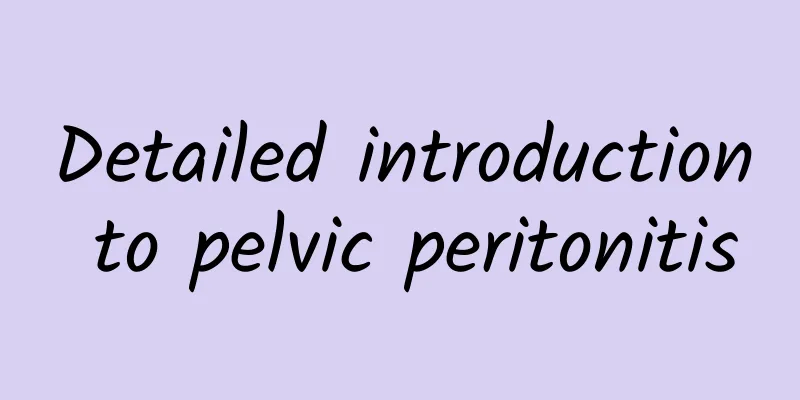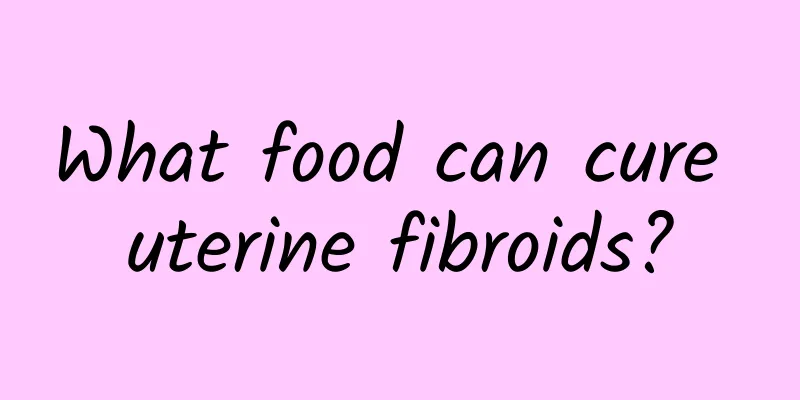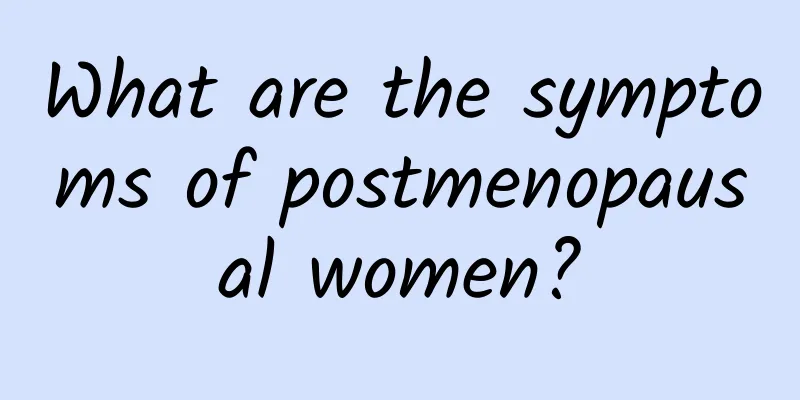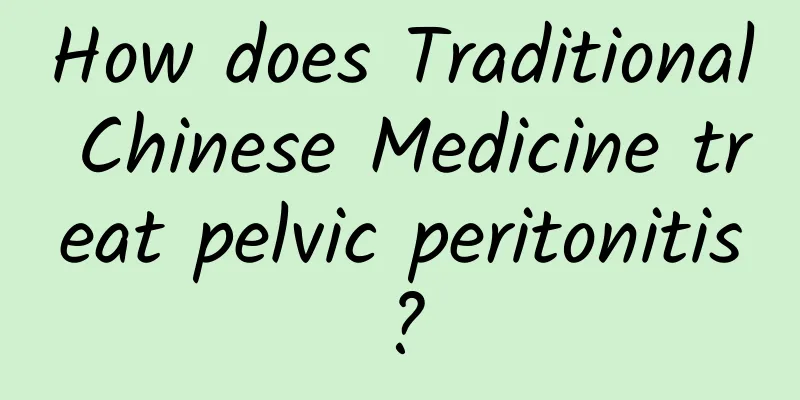Detailed introduction to pelvic peritonitis

|
Pelvic peritonitis mainly refers to inflammation of the female reproductive organs. Acute and chronic inflammation can occur in a variety of female organs, including female vulvitis, vaginitis, cervicitis, and pelvic peritonitis. Pelvic peritonitis often occurs in women who are sexually active and menstruating. Pelvic peritonitis rarely occurs in women before menarche, after menopause, or unmarried people. Let's talk about the introduction of pelvic peritonitis. Pelvic peritonitis is divided into acute pelvic peritonitis and chronic pelvic peritonitis. Incomplete treatment of acute pelvic peritonitis is an important cause of chronic pelvic peritonitis, which lasts for a long time and is difficult to cure. Bacteria start from the vulva, pass through the fallopian tubes and eventually infect the pelvis. Pelvic peritonitis cannot be ignored and its hazards are multifaceted. 1. Pelvic peritonitis may destroy ovarian function, cause hormone secretion disorders, affect ovulation, and prevent the follicles from developing and maturing normally or cause them to rupture. It is one of the causes of infertility caused by pelvic peritonitis. 2. Chronic pelvic peritonitis often manifests as bilateral salpingitis, which over time causes the opening of the fallopian tube, especially the end that receives the egg (called the umbrella end), to be partially or completely blocked. The inner mucosa of the fallopian tube may also adhere due to inflammation, causing the lumen to narrow or close. This will hinder the passage of eggs, sperm or fertilized eggs, leading to infertility. 3. When pelvic peritonitis is severe, an abscess may form between the uterus and the rectum. After the inflammation subsides, it may cause adhesions and change the relationship between the ovaries and fallopian tubes, causing adhesions and closure of the fallopian tube fimbria, and thickening and hardening of the capsule on the surface of the ovaries, so that the eggs cannot be discharged normally. It may also cause infertility due to affecting the transport function of the fallopian tubes. Currently, there are many methods for treating pelvic peritonitis, including traditional Chinese medicine treatment, physical therapy, drug therapy, surgical treatment, etc. Surgical treatment is mainly for hydrosalpinx or tubo-ovarian cysts or small lesions with recurrent attacks. Surgical treatment is based on complete cure and other treatment methods are supplementary. |
<<: Is pelvic peritonitis a serious disease?
>>: What is pelvic peritonitis?
Recommend
What's wrong with brown blood that doesn't look like menstruation?
What's wrong with brown blood that doesn'...
Walking helps you lose fat, reduce weight and prevent cancer! Walking health experts: Walking at this time is the best
Fight off all diseases by starting with scientifi...
Kangaroo dad! High-fat diet is the main culprit for abdominal obesity
Do you have a "Kangaroo Dad" in your fa...
How to use medicine to treat cervical erosion in women? 6 principles of using medicine to treat cervical erosion in women
In life, women do not need to panic when they suf...
How to maintain an oval face after a big meal? Nutritionist x Yu Bingyan and Xia Yuhe's tips for staying in shape
After the Mid-Autumn Festival in early October, t...
Experts briefly analyze the symptoms and characteristics of multiple uterine fibroids
Multiple uterine fibroids are a gynecological dis...
Bread contains gluten, will eating too much make you fat? Experts explain three major questions
The fluffy and soft bread, when you take a bite, ...
Can I get pregnant if I have uterine prolapse?
Uterine prolapse is a common disease among women,...
Lose weight during the menstrual cycle and shape your body first! Female Chinese medicine practitioner: Drink ginseng and brown sugar drink to lose weight easily during the golden weight loss period
Some people say, "You won't gain weight ...
Sexual dysfunction may lead to uterine fibroids
Sexual disorders are likely to cause uterine fibr...
Eat the right fruits to achieve true beauty
Fruit is the most life-enhancing of all foods, co...
Dietary regulation for women with irregular menstruation
Long-term irregular menstruation is extremely har...
What are the symptoms of uterine fibroids?
What are the symptoms of uterine fibroids? Due to...
What causes cervical erosion? What are the examination items for cervical erosion in women?
We all know about the disease of cervical erosion...
Does ovarian cyst require surgery to get pregnant?
Does ovarian cyst require surgery before pregnanc...









